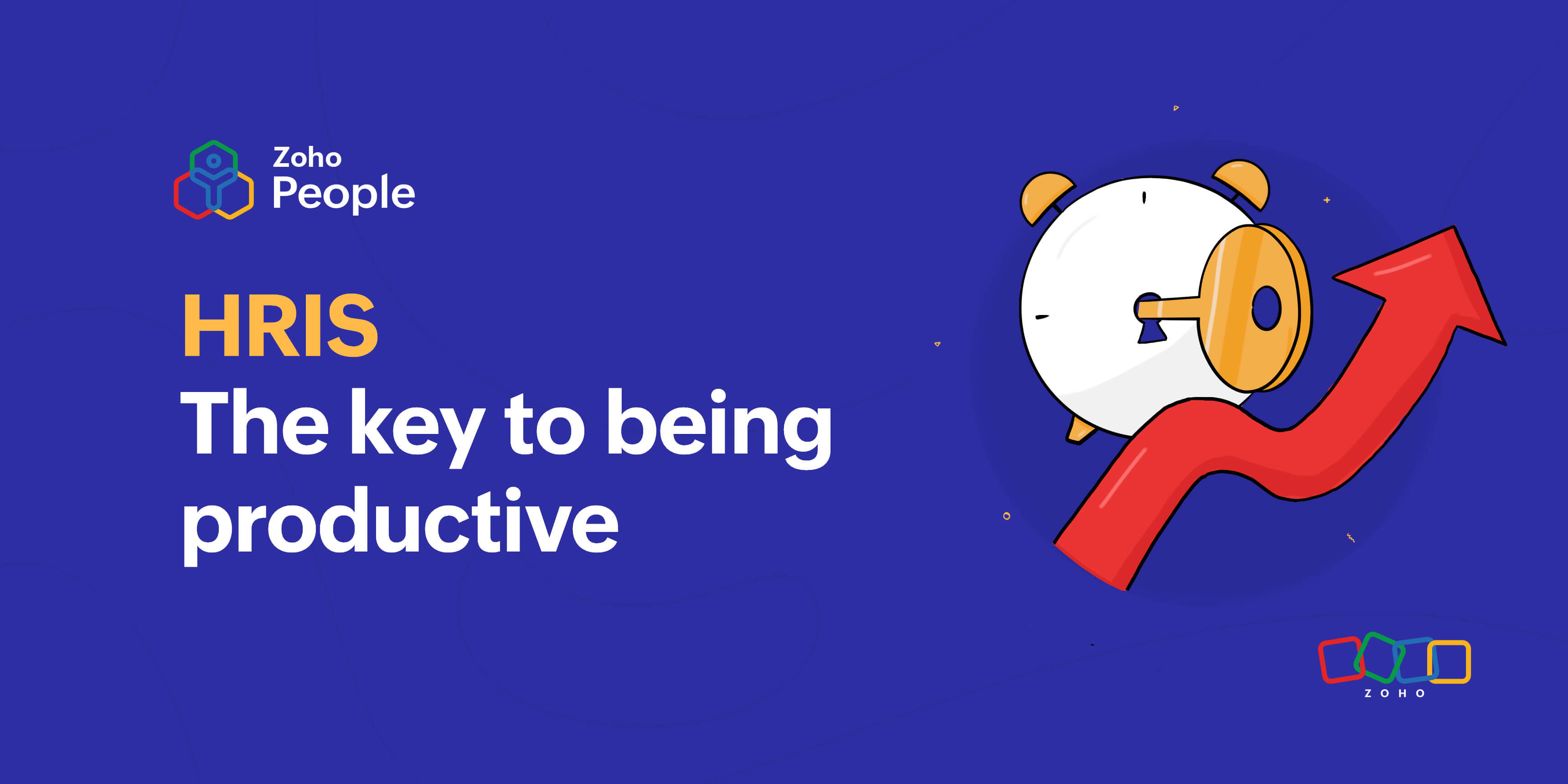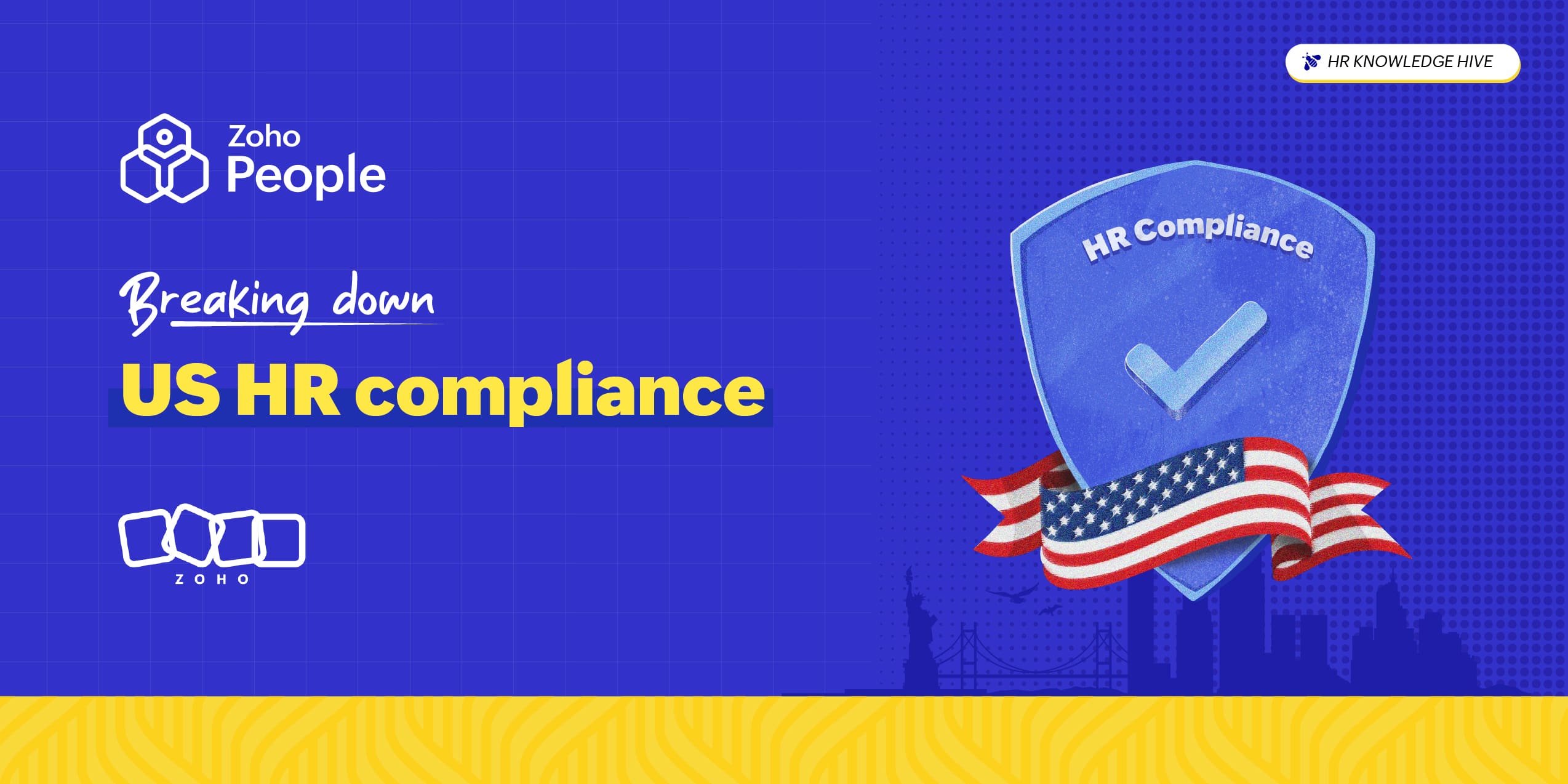- HOME
- More
- On Zoho People
- How does HRIS improve productivity?
How does HRIS improve productivity?
- Last Updated : April 16, 2025
- 1.7K Views
- 3 Min Read

If you're an HR professional, you're likely answering various employee questions, hiring candidates, processing payroll, documenting employee data, and taking care of other key HR operations daily. Managing all of these tasks requires a lot of meticulous planning and automation. Otherwise, navigating these responsibilities and building strong employee-employer relationships can get incredibly complicated. That's why it's crucial to adopt an intuitive tech tool like a human resources information system (HRIS). Here's how an HRIS can help you to overcome common HR-related challenges and boost productivity:
Automates routine HR tasks
Attendance, leave, payroll, and timesheet management software each take a fair share of your HR team's time every day. An HRIS can make these processes seamless. For instance, instead of manually circulating an attendance check-in page or using a shared spreadsheet, your HR team can have employees mark their attendance through the HRIS's mobile or web app. This way, if employees forget to mark their attendance, they'll receive an automatic alert. When employees don't mark their attendance, the system will record it as an absence automatically.
Since attendance, leave, and timesheet management are each interlinked with payroll management, the HRIS enables data to flow across these processes without any human intervention. Payroll calculations can be done automatically without any errors since all the required inputs are readily available.
Supports self-service
Unless you have a very large HR team, managing employee HR activities can take up most of your time. An HRIS comes with a perfect solution to this problem, and that is the self-service portal. Using the self-service portal, employees can add their information, mark attendance, correct attendance entries with approval, apply for leave, ask questions, track project hours, view important announcements, and access important documents. This will take a great amount of burden off your HR team's shoulders.
Streamlines approvals
If your employees require HR approval for leave, timesheets, travel requests, and expense reimbursements, the approvals can become a substantial part of your team's day-to-day workload. Having to send multiple emails back and forth to complete approvals can greatly hinder productivity. With an HRIS, you can set workflows in just a few steps and automate the entire approval process. For instance, if you're processing leave requests, you can configure how many levels of approvals you'd like to have and define who should approve or reject requests at each level. This way, leave requests are sent directly to the appropriate team members. Workflows can be configured to remind team members about pending approvals, and employees can track the status of their requests from within the app itself.
Provides key insights
Manually analyzing your HR operations can be extremely tiring. Fortunately, most HRIS systems automatically analyze your data and generate handy reports. This helps you better understand the state of your HR operations. For instance, performance reports can provide insights on the ratings and feedback your employees have received, along with details about their goals, competencies, and more. Similarly, employee management reports can provide information on your organization's attrition trends, total headcount, and addition trends.
Manages employee data better
Ensuring compliance is one of the most important administrative tasks that the HR team is tasked with. An HRIS can make the process of managing employee data a breeze. Instead of inputting and editing the same data in multiple places, the system will do it for you. Similarly, data will be stored in a centralized space and can be accessed by anyone in your organization with appropriate permissions. To avoid data misuse, you can define who can access data, who can edit it, and who can delete it. Even if your organization has multiple entities, you can manage employee data pertaining to every entity from a single system.
Adopting an HRIS to improve productivity
An HRIS can take the tedium out of routine HR operations and help organizations and employees by automating every step involved in the process. This system puts an end to manual work, errors, and compliance issues while taking workplace productivity to the next level.
Zoho People, our intuitive HRIS, makes everyday HR operations more efficient while providing a scalable way for HR teams to manage their workforce's database. Learn more about Zoho People.
 Tarika
TarikaContent Specialist at Zoho People


